What is a street that produces epiphanies?
How might neighbourhoods innovate entirely new kinds of informal hang-outs? What would a city built to generate and celebrate inefficiency be like? For weeks design students have been working in the old Munch Museum making a Garden of Ideas. A Garden of Ideas is a pop-up strategic design studio for cultivating neighbourhood futures at the Oslo Architecture Triennale 2022.
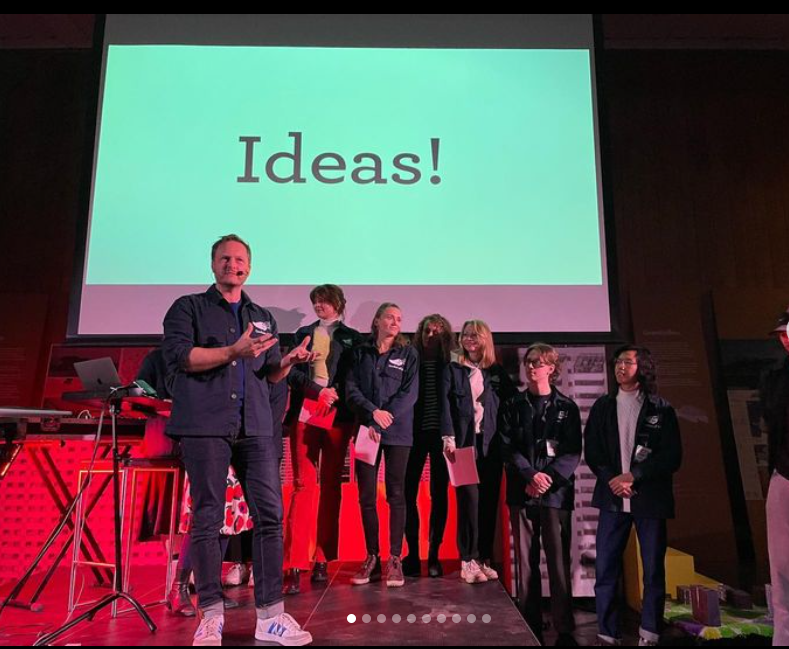
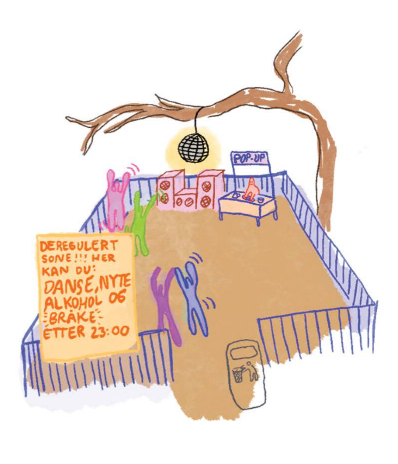
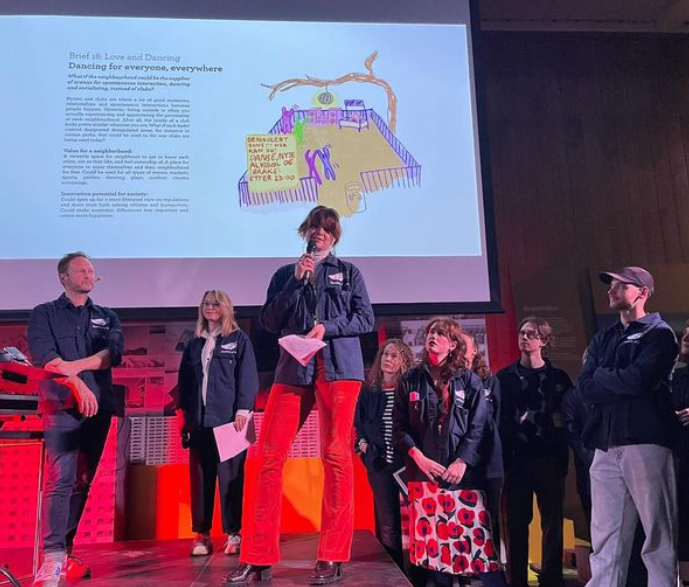
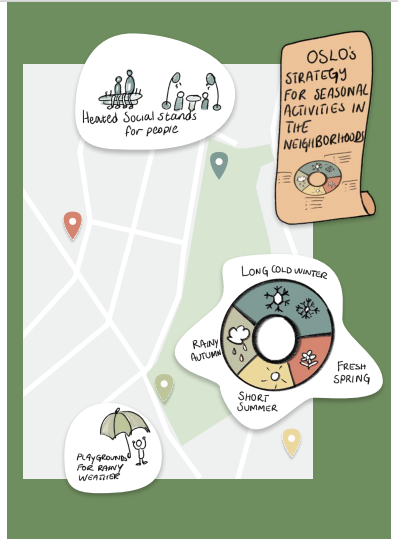
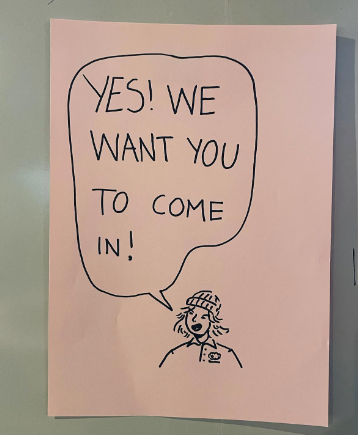
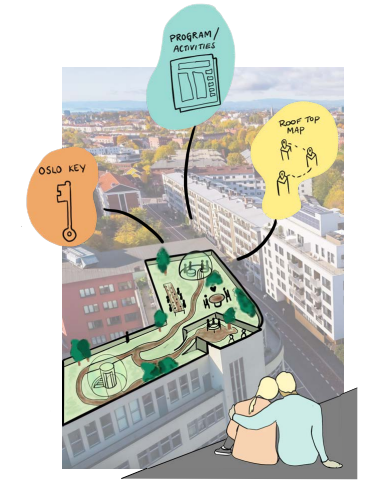
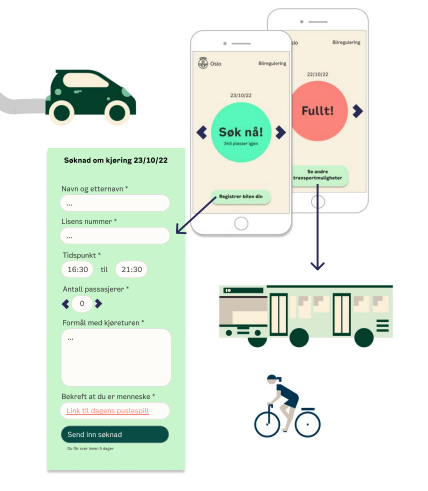
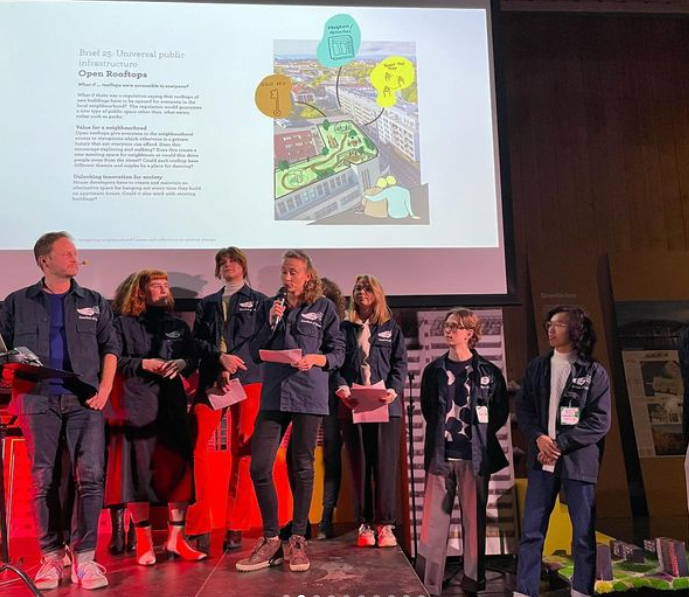
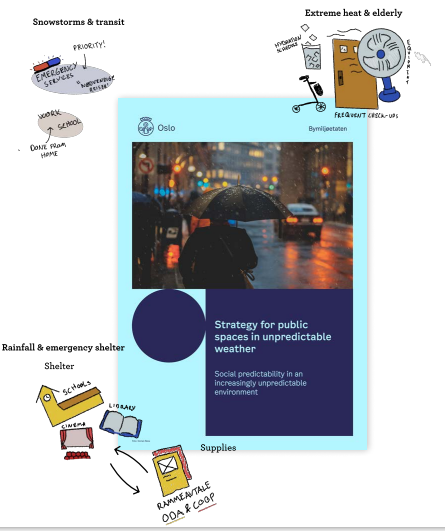
A Garden of Ideas is developed by Einar Sneve Martinussen, Dan Hill and Joakim Formo with students from the “Strategic Design for Society” master course at the Oslo School of Architecture and Design.
“The Garden of Ideas has been one of the few projects in my design education where I’ve felt completely free and supported to create far-reaching, and sometimes implausible, ideas. By giving up the notion of ownership to our work, we’ve been able to create and develop ideas in a uniquely collaborative setting.”
The theme for this year’s Triennale is ‘Mission Neighbourhood’ - spotlighting neighbourhoods as the place and horizon for rethinking our cities and societies. For 6 weeks the Garden of Ideas team have been running a continuous early phase design project about neighbourhood innovation. The dusty, old workshop of the old Munch Museum at Tøyen has been redesigned into a space for celebrating the craft of collective idea-making and is have been open for everyone five days a week.
“The garden of ideas has been a very interesting and fun experiment. It shows how designers can and should play a larger role in urban development, and what can happen when design work is done in public with and for the collective.”
Michalina Fidos, one of the students, shares her reflections
It has been very intensive but also an interesting process as it was done in collaborative manners between us in terms of ideas generations, iterations until the final proposal. We had an equal voice of what we were going to present, and we had no ownership over an idea. Visitors had a chance to participate in the process and I found this part crucial because we got quick validation of ideas at the early stage by potential users of the concepts. Therefore, the democratic style of running co-creating space brought new possibilities but also challenges, as everyone is set in different social network, political, economic and environmental context. For instance, the incredibly sensitive but fascinating topic around “death”. Having diverse backgrounds, we have different customs and rituals, some collective, others individual, we faced a challenge how to approach a healthier appreciation of death, and thus life, having everyone’s cultural background in mind? On a more trivial topic, we discussed the way we perceive seasons and their particular characteristics that can be experienced, especially in Norway. We came out with two ideas around seasons that could inspire people to see unpleasant weather as an opportunity and encourage city planners to involve citizens in developing sesonal strategies. Additionally, we had exciting guests, like Adrian Paulsen from Halogen who presented his current case about “future tax collection” and talked about where to identify possibilities in the system. This was inspiring, though also quite difficult, it led to more diverse points of views over one idea and brought possible values both for small neighborhood perspective scale while also unlocking the bigger societal innovation potential.
We finalized the project with 50 more or less realistic ideas which are to trigger bureaucrats when they make decisions about policy making in the future. You can see a selection here.
Team
Einar Sneve Martinussen, Associate professor AHO
Dan Hill , Director Melbourne School of Design
Joakim Formo, Associate professor AHO
Glenn Sæstad, Assistant professor AHO
Students
Juni Ruud Bunkholdt
Tetiana Dubovenko
Nora Røstø Grøtberg
Michalina Fidos
Malin Emilie Hoff
Oskar Jeremiasz Jasiczak
Tobias Mangersnes
Ragne Helene Solum Mathiesen
Hanna Steingrimsdottir
Regina Von Koch
Yingjie Wei

